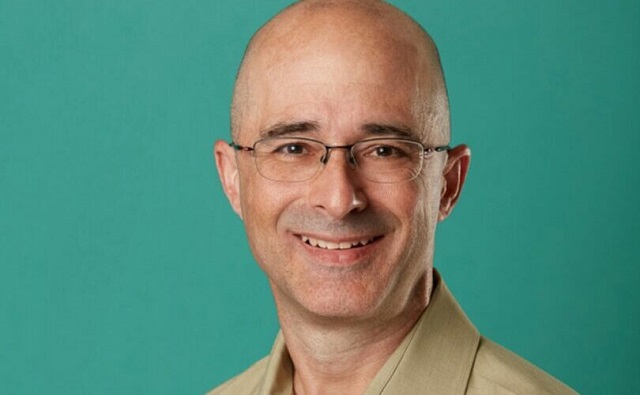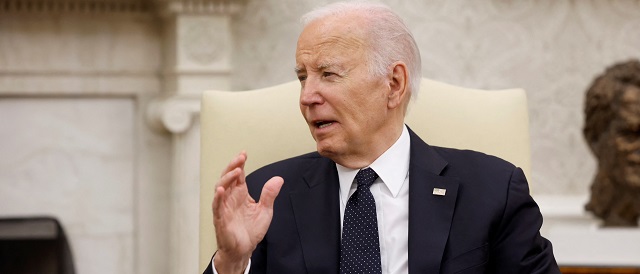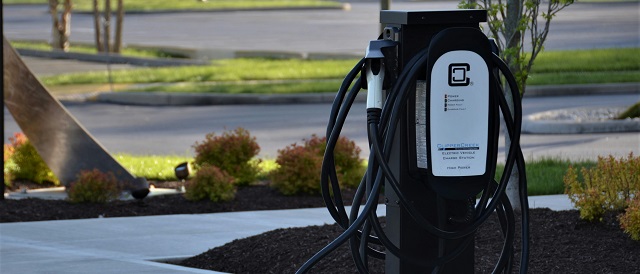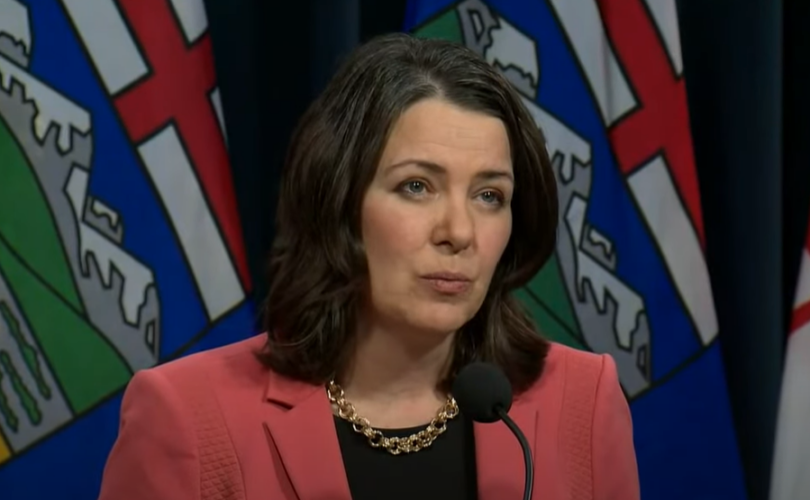Health
Setback for the Transgender movement: Michael Shellenberger on leaked files revealing medical malpractice on children and vulnerable adults

Video interview below background information from EnvironmentalProgress.org
LEAKED FILES FROM WPATH REVEAL WIDESPREAD MEDICAL MALPRACTICE ON CHILDREN AND VULNERABLE ADULTS AT GLOBAL TRANSGENDER HEALTHCARE AUTHORITY
World Professional Association of Transgender Health (WPATH) members demonstrate a lack of consideration for long-term patient outcomes despite being aware of the debilitating and potentially fatal side effects of cross-sex hormones and other treatments
Press Release: JDA Worldwide for Environmental Progress
Newly leaked files from within the leading global transgender healthcare body have revealed that the clinicians who shape how “gender medicine” is regulated and practiced around the world consistently violate medical ethics and informed consent. The files, which were leaked from within the World Professional Association for Transgender Health (WPATH), were published by the US-based think tank Environmental Progress.
WPATH is considered the leading global scientific and medical authority on “gender medicine,” and in recent decades, its Standards of Care have shaped the guidance, policies and practices of governments, medical associations, public health systems and private clinics across the world.
However, the WPATH Files reveal that the organization does not meet the standards of evidence-based medicine, and members frequently discuss improvising treatments as they go along. Members are fully aware that children and adolescents cannot comprehend the lifelong consequences of “gender-affirming care,” and in some cases, due to poor health literacy, neither can their parents.
“The WPATH Files show that what is called ‘gender medicine’ is neither science nor medicine,” said Michael Shellenberger, President and founder of Environmental Progress. “The experiments are not randomized, double-blind, or controlled. It’s not medicine since the first rule is to do no harm. And that requires informed consent.”
The raw files have been published in a report called The WPATH Files: Pseudoscientific surgical and hormonal experiments on children, adolescents, and vulnerable adults, which contains analysis by journalist Mia Hughes that puts the WPATH Files in the context of the best available science on gender distress.
Environmental Progress has made all files available to read at the end of the report. The leaked files include screenshots of posts from WPATH’s internal messaging forum dating from 2021 to 2024 and a video of an internal panel discussion. All names have been redacted other than several WPATH members of public significance, such as Dr. Marci Bowers, an American gynecologist and surgeon who is the President of WPATH, and the Canadian pediatric endocrinologist Dr. Daniel Metzger.
In the WPATH Files, members demonstrate a lack of consideration for long-term patient outcomes despite being aware of the debilitating and potentially fatal side effects of cross-sex hormones and other treatments. Messages in the files show that patients with severe mental health issues, such as schizophrenia and dissociative identity disorder, and other vulnerabilities such as homelessness, are being allowed to consent to hormonal and surgical interventions. Members dismiss concerns about these patients and characterize efforts to protect them as unnecessary “gatekeeping.”
The files provide clear evidence that doctors and therapists are aware they are offering minors life-changing treatments they cannot fully understand. WPATH members know that puberty blockers, hormones, and surgeries will cause infertility and other complications, including cancer and pelvic floor dysfunction. Yet they consider life-altering medical interventions for young patients, including vaginoplasty for a 14-year-old and hormones for a developmentally delayed 13-year-old.
The WPATH Files also show how far medical experiments in gender medicine have gone, with discussions about surgeons performing “nullification” and other extreme body modification procedures to create body types that do not exist in nature.
A growing number of medical and psychiatric professionals say the promotion of pseudoscientific surgical and hormonal experiments is a global medical scandal that compares to major incidents of medical malpractice in history, such as lobotomies and ovariotomies.
“Activist members of WPATH know that the so-called ‘gender-affirming care’ they provide can result in life-long complications and sterility and that their patients do not understand the implications, such as loss of sexual function and the ability to experience orgasm,” Shellenberger said. “These leaked files show overwhelming evidence that the professionals within WPATH know that they are not getting consent from children, adolescents, and vulnerable adults, or their caregivers.”
Environmental Progress has written to every WPATH member named in the files, as well as additional members whose names have been redacted, to confirm their comments and offer a right of reply. Two people responded – one confirmed that the comments attributed to them were correct, and another did not deny their comments but refuted Environmental Progress’ interpretation of them. Mention of Environmental Progress’ outreach to members via email was then later seen in the form of comments on WPATH’s internal messaging forum.
Interview with Michael Shellenberger from Jordan B Peterson Clips
READ: THE WPATH FILES AND REPORT
Fraser Institute
Policymakers in Ottawa and Edmonton maintain broken health-care system

From the Fraser Institute
What’s preventing these reforms? In a word, Ottawa.
To say Albertans, and indeed all Canadians, are getting poor value for their health-care dollars is a gross understatement. In reality, Canada remains among the highest spenders on health care in the developed world, in exchange for one of the least accessible universal health-care systems. And while Canadians are increasingly open to meaningful reform, policymakers largely cling to their stale approach of more money, platitudes and little actual change.
In 2021 (the latest year of available data), among high-income universal health-care countries, Canada spent the highest share of its economy on health care (after adjusting for age differences between countries). For that world-class level of spending, Canada ranked 28th in the availability of physicians, 23rd in hospital beds, 25th in MRI scanners and 26th in CT scanners. And we ranked dead last on wait times for specialist care and non-emergency surgeries.
This abysmal performance has been consistent since at least the early 2000s with Canada regularly posting top-ranked spending alongside bottom-ranked performance in access to health-care.
On a provincial basis, Albertans are no better off. Alberta’s health-care system ranks as one of the most expensive in Canada on a per-person basis (after adjusting for population age and sex) while wait times in Alberta were 21 per cent longer than the national average in 2023.
And what are governments doing about our failing health-care system? Not much it seems, other than yet another multi-billion-dollar federal spending commitment (from the Trudeau government) and some bureaucratic shuffling (by the Smith government) paired with grandiose statements of how this will finally solve the health-care crisis.
But people aren’t buying it anymore. Canadians increasingly understand that more money for an already expensive and failing system is not the answer, and are increasingly open to reforms based on higher-performing universal health-care countries where the public system relies more on private firms and entrepreneurs to deliver publicly-funded services. Indeed, according to one recent poll, more than six in 10 Canadians agree that Canada should emulate other countries that allow private management of public hospitals, and more than half of those polled would like increased access to care provided by entrepreneurs.
What’s preventing these reforms?
In a word, Ottawa. The large and expanding federal cash transfers so often applauded by premiers actually prevent provinces from innovating and experimenting with more successful health-care policies. Why? Because to receive federal transfers, provinces must abide by the terms and conditions of the Canada Health Act (CHA), which prescribes often vaguely defined federal preferences for health policy and explicitly disallows certain reforms such as cost-sharing (where patients pay fees for some services, with protections for low-income people).
That threat of financial penalty discourages the provinces from following the examples of countries that provide more timely universal access to quality care such as Germany, Switzerland, Australia and the Netherlands. These countries follow the same blueprint, which includes patient cost-sharing for physician and hospital services (again, with protections for vulnerable populations including low-income individuals), private competition in the delivery of universally accessible services with money following patients to hospitals and surgical clinics, and allowing private purchases of care. Yet if Alberta adopted this blueprint, which has served patients in these other countries so well, it would risk losing billions in health-care transfers from Ottawa.
Finally, provinces have seemingly forgot the lesson from Saskatchewan’s surgical initiative, which ran between 2010 and 2014. That initiative, which included contracting out publicly financed surgeries to private clinics, reduced wait lists in Saskatchewan from among the highest in the country to among the shortest. And when the initiative ended, wait times began to grow again.
The simple reality of health care in every province including Alberta is that the government system is failing despite a world-class price tag. The solutions to this problem are known and increasingly desired by Canadians. Ottawa just needs to get out of the way and allow the provinces to genuinely reform the way we finance and deliver universal health care.
Author:
Community
Last Day: What would you do with $20,000 Early Bird Prize?

|
|
|
|
|
|
-

 Alberta Sports Hall of Fame and Museum1 day ago
Alberta Sports Hall of Fame and Museum1 day agoTHE HALFTIME REPORT News from the Alberta Sports Hall of Fame
-

 COVID-191 day ago
COVID-191 day agoQuebec microbiology professor fired for his public opposition to COVID shots
-

 Censorship Industrial Complex1 day ago
Censorship Industrial Complex1 day agoBiden Agencies Have Resumed Censorship Collaboration With Big Tech, Dem Senate Intel Chair Says
-

 COVID-1921 hours ago
COVID-1921 hours agoAstraZeneca withdraws COVID vaccines worldwide amid lawsuits alleging severe harm
-

 espionage19 hours ago
espionage19 hours agoBiden expands government’s power to spy on Americans without a warrant
-

 Opinion2 days ago
Opinion2 days agoBoy Scouts of America changes name to ‘Scouting America’ to be ‘more inclusive’
-

 Censorship Industrial Complex19 hours ago
Censorship Industrial Complex19 hours agoInternet censorship laws lead a majority of Canadians to believe free speech is threatened: poll
-

 Automotive1 day ago
Automotive1 day agoNew Analysis Shows Just How Bad Electric Trucks Are For Business












